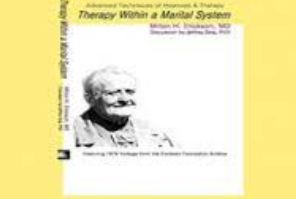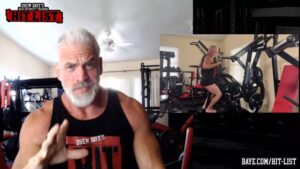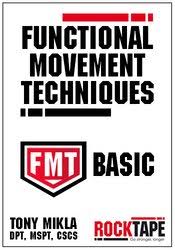You will walk away with neurologically tailored sensory strategies, cutting-edge treatment techniques, and sensory equipment strategies… including mindfulness, social skills, music and movement, and respiratory-based techniques.
Â
Varleisha D – Certificate Course in Neurological Approaches for Self-Regulation: Techniques for Kids with Autism, ADHD & Sensory Disorders
Â
Do you work with kids demonstrating challenging behaviors such as hyper-activity, hypoactivity, aggressiveness, self-stimulation and inattentiveness? Maybe their parents or guardians are looking for more answers… and you’re not completely sure how to respond to “Why is this happening to my child?â€
Knowing the underlying brain connections will help you better select and develop appropriate interventions for these disruptive behaviors. Join renowned self-regulation expert and author, Varleisha Gibbs, PhD, OTD, OTR/L, for this intensive online course and learn clinically proven neurological approaches to addressing self-regulation in children and adolescents diagnosed with Autism, Sensory Processing Disorder, and ADHD.
You will walk away with neurologically tailored sensory strategies, cutting-edge treatment techniques, and sensory equipment strategies… including mindfulness, social skills, music and movement, and respiratory-based techniques.
Connect underlying neurological components to clinical practice through:
Brain dissection video wet labs, neuroanatomy, pathways, and function
Autonomic nervous system and its connection to stress, fear, and primitive reflexes
Video examples of children in a sensory clinic demonstrating positive outcomes when equipment is used appropriately
You will learn how to analyze and apply treatment techniques, such as:
Activating the vagus nerve and the nervous system for regulation
Addressing primitive reflexes and improving social skills and age appropriate behaviors
Incorporating a mindfulness program for self-regulation
Applying evaluation processes, treatment planning, goal development, and re-assessment of children displaying challenging social, eating, and sleeping behaviors
Plus, you’ll also receive first-hand demonstrations from a sensory clinic with a Sensory-Based In-Session and walk away with over 80 exercises and worksheets from Dr. Gibbs’ popular eBook, Self-Regulation and Mindfulness — both included in your course tuition when you register today!
Advance your knowledge and your practice! Earn your certificate today! Whether you are an expert on the brain or new to this science, Dr. Gibbs makes it easy to understand and easy to implement. Transform your practice and your clients’ lives with an inspired, new outlook on self-regulation…
Redefine Self-Regulation with Neurological Approaches
The Brain-Body Connection
Dr. Varleisha D. Gibbs will show you how to differentiate between the characteristics of sensory processing disorder, ADHD and autism and how the neurological processes of each disorder coincide with one another. You’ll walk away with neurological approaches that tap into the central, autonomic, and enteric nervous systems to improve your clinical intervention techniques:
The Neuroscience Behind Self-Regulation
A look at sensory-motor pathways
Brain dissection video: The emotional brain and its connection to executive functioning
Neurological dysfunction: Hyper-activity, hypo-activity, aggressiveness, self-stimulatory, and inattentiveness
Neuro and Sensory Integration: Linking to Behaviors
Breaking down self-regulation: Sensory, cognition and emotions
Self-regulation effects on behavior: Flapping, inflexibility, rigidity, lack of inhibition, poor social skills, risk taking
The power of the autonomic nervous system and its connection to behavior (ie. stress, fear and primitive reflexes)
The power of primitive reflexes and how they impede on function
Tools and strategies for assessing primitive reflexes
Get immediately download Varleisha D – Certificate Course in Neurological Approaches for Self-Regulation: Techniques for Kids with Autism, ADHD & Sensory Disorders
Video Case Study Analyzation: Aligning Symptoms and Characteristics with Appropriate Interventions
ADHD: Diagnosis and current treatment strategies
Autism: Diagnosis and DSM-5® updates
Sensory Processing Disorder (SPD):
Sensory modulation disorder
Sensory-based motor disorder
Sensory discrimination disorder
Evidence-Based Clinical Interventions
Discover practical clinical interventions for challenging behaviors in clients, such as hyper-activity, hypoactivity, aggressiveness, self-stimulation and inattentiveness. You’ll learn how to implement music as a technique to initiate sensorial stimuli, calming and attentiveness in clients, and how to integrate a comprehensive mindfulness program to improve self-regulation in clients.
Self-Regulation Techniques and the Vagus Nerve Connection
Communication strategies that provide control: Symbolic and non-verbal
Self-management and behavioral strategies: Behavioral contracts, checklist for tracking behaviors, video modeling
Addressing picky eating and poor sleep habits: Desensitizing and non-threatening activities
Music as a technique to initiate sensorial stimuli, calming and attentiveness
New interventions for vestibular, proprioceptive, auditory, smell and vision work
Apply Neuroscience to Interventions: Hands-on Activities
Neurological connection of current programs such as Brain Gym®, sensory diets, and MeMoves™, just to name a few!
Integrate a mindfulness program for self-regulation
Address primitive reflexes and improve social participation and age appropriate behaviors
Tool to assess child’s arousal levels to be used for daily schedules and to organize daily interventions
Treatment Planning: Video Case Examples of Children Displaying Challenging Social, Eating and Sleep Behaviors
Perform a virtual evaluation
Develop a treatment plan
Goal development
Re-assessment: When is it needed and when to discharge
The Neuroscience Behind Self-Regulation
Evidence-based intervention and techniques to address challenges with self-regulation
Address psychosocial concerns and experiences of caregivers of children with self-regulation challenges
Communicate methods to address reciprocal regulation between the child and caregiver to address the influences and interaction each have
BONUS! Sensory-Based In-Session & Over 82 Exercises featuring Dr. Gibbs’ Expertise
Retail Value Over $80 — Included When You Register Today!
Sensory-Based In-Session (CE Video)
Strategies, Techniques and Equipment for Children with ASD, SPD, and ADHD
Discover various sensory strategies, techniques, and equipment to use when working with children with ASD, SPD, and ADHD. The underlying neurological components will be reviewed to connect neuroanatomy to practice.
You will learn what types of equipment you should purchase for your clinic as well as their appropriate use, when to use them, and for how long. Video examples of children in a sensory clinic will be used to demonstrate correct versus incorrect methods, including how to maneuver the equipment for the sought response as well as what happens when equipment is used incorrectly.
A unique emphasis will be given to the neurological background, in relation to specific treatment techniques. Evidence-based practice will be an integral part of reviewing theories and current treatment techniques. Treatment techniques to be analyzed include sound-based, movement, and vision-based therapies.
Self-Regulation and Mindfulness (PDF Download)
Over 82 Exercises & Worksheets for Sensory Processing Disorder, ADHD, & Autism Spectrum Disorder
This evidence-based resource will help the children you work with who have trouble self-regulating, staying focused, managing their senses and controlling their emotions.
Based on the latest research in neuroscience, Self-Regulation & Mindfulness provides highly practical, kid friendly lessons to teach therapists, parents, educators and children about their brain and body, so they can build the needed skills to self-regulate.
Hands-on activities
Step-by-step exercises
Coloring pages and worksheets
Walk away with clear, concise and fun activities to address your children’s arousal, attention, and social participation!
The Next Steps in Advancing Your Practice
Watch your email for your order confirmation, and get instant access to all course materials, including the bonus materials — all designed to help you effectively integrate neurological approaches for self-regulation into your practice. Click here for course objectives and outline.
Review the course materials at your own pace and at your convenience! You’ll have unlimited access to all course videos and materials online forever. Plus, use the PESI Mobile™ app to access the course content on-the-go, wherever and whenever you want on your mobile devices.
Instantly collaborate with other professionals on the course materials through interactive message boards. You’ll be part of a community of hundreds of practitioners all focused on integrating advanced neuroscience and self-regulation techniques in clinical practice, providing valuable opportunities to share insight and experiences and to build your professional network.
Complete your online CE tests and earn up to 13.75 CE Hours! Click here for CE credit details and credit details specific to your profession.
Get immediately download Varleisha D – Certificate Course in Neurological Approaches for Self-Regulation: Techniques for Kids with Autism, ADHD & Sensory Disorders
About Your Speaker
Varleisha D. Gibbs, PhD, OTD, OTR/L, is an occupational therapist and author with 17 years of experience working with children and adolescents diagnosed with Autism Spectrum Disorder, Sensory Processing disorders and Neurological disorders. Dr. Gibbs is the Scientific Programs Officer for the American Occupational Therapy Foundation. She is the inaugural chair and director of the master’s programs in occupational therapy and full-time associate professor at Wesley College in Dover, DE. Prior to joining Wesley, she worked at the University of the Sciences in Philadelphia, PA, where she served as the director of the doctoral programs in occupational therapy.
Dr. Gibbs is steadfast and an expert in the field of neurology, cognition, and pediatric therapeutic intervention. She continues to lecture, and provide training, on sensory processing strategies and self-regulation to practitioners, parents, and teachers throughout the country and internationally. Dr. Gibbs is the developer of the Self-Regulation and Mindfulness program, and her book, Self-Regulation and Mindfulness: Exercises and Worksheets for Sensory Processing Disorder, ADHD, and Autism Spectrum Disorder, was published in 2017 (PESI Publishing & Media). As co-author of Raising Kids with Sensory Processing Disorders, she has provided families with strategies to understand and care for their children.
In 2003, Dr. Gibbs founded Universal Progressive Therapy, Inc., a company that provides interdisciplinary and quality therapeutic services to families. As founding president, she provided treatment interventions and education in the areas of sensory integration, autism as well as family-centered care. Dr. Gibbs co-authored the publication, “Family-Centered Occupational Therapy and Telerehabilitation for Children with Autism Spectrum Disordersâ€, found in the journal of Occupational Therapy in Healthcare. She received her PhD at Seton Hall University with a dissertation focusing on the Autism Spectrum diagnosis. Dr. Gibbs earned her doctorate in occupational therapy at Thomas Jefferson University and her master’s training in occupational therapy from Columbia University.
Click here for information about Varleisha D. Gibbs
Speaker Disclosures:
Financial: Dr. Varleisha Gibbs is the founder/president of Universal Progressive Therapy, Inc. She is a faculty member at the University of the Sciences Philadelphia and receives compensation. She is a speaker who receives an honorarium for PESI, Inc.
Non-financial: Dr. Varleisha Gibbs has been published in a peer-reviewed journal Occupational Therapy and Healthcare.






